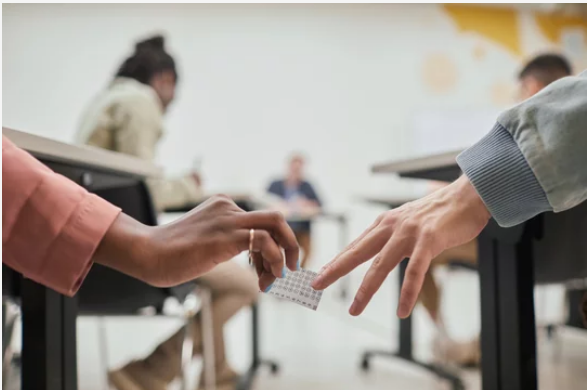
Cheating in School
Academic cheating is rampant and on the rise among young people today. Professor Donald McCabe, who has studied this phenomenon for decades, finds that 95% of high school students resort to cheating in one way or another. Several factors seem to be contributing to this trend. While the Internet provides ready access to information, it also offers greater temptation for students to “lift” passages—and sometimes entire papers. Some students may not appreciate that doing research appropriately requires acknowledging and crediting others for their ideas. For those who do realize that whatever they are doing is considered cheating, it can be too easy to rationalize their behavior.
As a result of increased competition for coveted spots in college, internships, and jobs, many students who are determined to excel at any cost resort to taking shortcuts. Their thinking is, “everyone else is cheating, too.” Notably, the most highly performing students often get away with cheating because achievement is often equated with moral superiority. Or, more concerning, parents who prioritize high achievement may simply ignore—and sometimes encourage—cheating. This can take the form of excusing absences when students are unprepared for tests, acquiring unnecessary accommodations such as extended time on exams, and so forth. Among some these days, there is a more relaxed attitude about following rules. This may be why students today seem less fearful of authority figures and their consequences.
In response to the sharp rise in cheating, however, educators are increasingly using computer programs to identify plagiarism. It is important to encourage academic authenticity and accountability. As Professor McCabe has explained, cheating becomes a lifelong pattern. Young people who plagiarize or cheat on tests in high school typically do so in college and later careers. On university campuses, students who are caught cheating may face consequences far more significant than they imagined.
Fortunately, there is much parents can do at home to minimize the risk of students making such embarrassing and academically, emotionally, and financially costly mistakes. First, convey the attitude that grades are not the be-all and end-all. The process of learning is far more important. Motivation and effort, for example, might not always be reflected in exam scores. Second, discuss where teens are sourcing the information for their papers, projects, and reports—and how they can give proper credit for others’ ideas. Third, parents need to make clear that plagiarism and cheating are wrong and will not be tolerated, even if they produce stellar academic records. Finally, parents have to demonstrate sincerity by walking the walk.